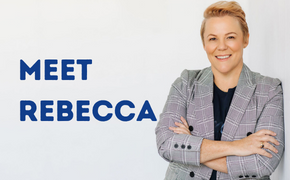It’s no secret that leadership has become more challenging. We’ve entered the age of Durable Disruption – an era of never-ending change – and we’re all feeling the impact on our resilience, our adaptability and our working relationships.
Leaders are feeling increasingly overwhelmed, paralysed by ambiguity and struggling to adapt to new ways of working, a new speed, and new expectations. In short, they are losing confidence.
Leadership confidence is a critical measure in economic wellbeing, employee engagement and organisational performance, and is arguably the foundation of leadership.
“Self-confidence is the fundamental basis from which leadership grows”
Francisco Dao says, “Self-confidence is the fundamental basis from which leadership grows” and further argues that building other leadership skills (such as communicating, decision making, and delegation) on top of shaky confidence like building a house on quicksand.
I’m inclined to agree. Without a confident mindset, even a highly trained leader will struggle to lead.
The benefits of a confident leader
A confident leader is likely to be more engaged, optimistic, and self-motivated. They build better relationships with colleagues, are more inspiring and more likely to be trusted to represent the group.
Confident leaders are more likely to take calculated risks, to drive change and problem solve.
More importantly, when a leader exhibits confidence, it makes it easier to trust in them. And people want to work with leaders they trust.
And when a leader isn’t confident?
- They struggle to make decisions – they often second-guess themselves
- They are hard to collaborate with – they become defensive
- They start to isolate themselves and their teams – retreat into silo thinking – as they seek to regain control over their environment.
What are the pitfalls of an overconfident leader?
- If they fail to do what they said they would do, it creates a question mark over their integrity
- They often resist feedback and personal change
- Overconfidence can diminish trust from others
- They can ignore or override the desires of others, leaving others feeling used or ignored
As Aakanksha Kesarwani wisely puts it, “When you’re confident, it’s like, ‘I can do this.’ But when you’re proud (overconfident), it’s like, ‘only I can do this.’”
So what is leadership confidence made of?
Resilience – the ability to bounce back quickly and to take risks
Adaptability – the ability to pre-empt and adjust to any circumstances
Influence – the ability to collaborate, communicate and persuade with authenticity
It's not about certainty
Leadership these days is not about certainty – people leading can be ambiguous at the best of times, let alone in this time of durable disruption when the level of information is enormous, yet never enough and the possibilities are endless. We have to be ok with guessing, and that takes confidence.
It's not about being right either
It’s not about being right either – we are increasingly facing situations we haven’t seen before and our likelihood of saying “I don’t know”, changing your mind, or failing in your goal, is on the rise. Being comfortable with that vulnerability takes confidence.
And we’re still expected to show confidence on the outside, even if we are not feeling it on the inside. People follow confident leaders. We have to dig deeper to find the courage – to feel the fear of the unknown and do it anyway and that too takes confidence.
Your confidence comes from knowing that you are resilient; you will bounce back. From knowing you are adaptable – your resourcefulness will find a way through anything. From knowing you can work effectively together in even the most difficult circumstances.
Three quick tips from me on developing your leadership confidence:
- Focus on positives – celebrate small steps if big ones aren’t available
- Work on your strengths rather than your weaknesses – it’s reaffirming
- And have fun – life is short!













